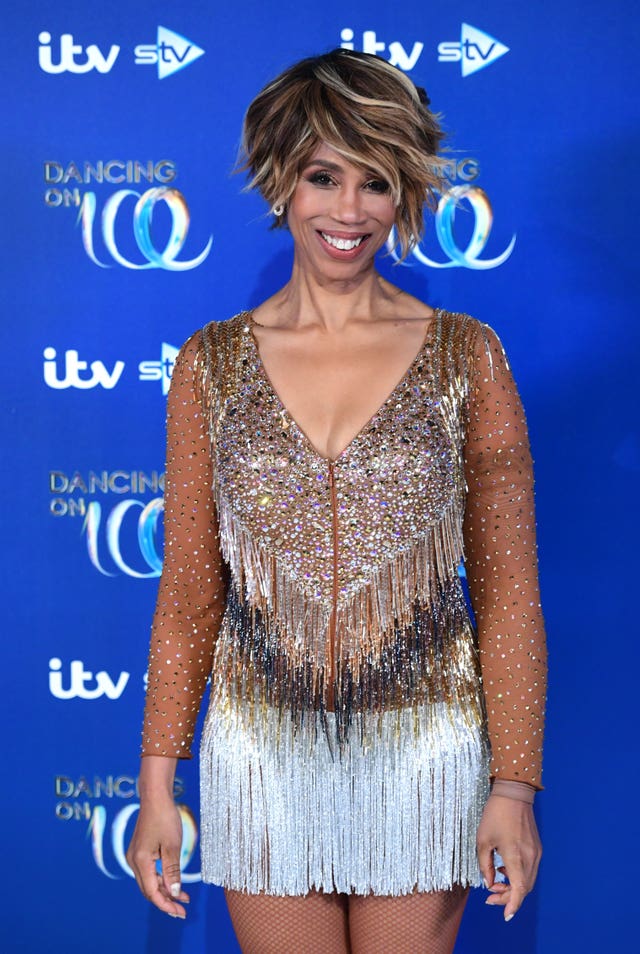
Trisha Goddard has said it has been a “learning process” getting to grip with a new inclusive language after her child came out as non-binary.
The chat show host, 64, has two children from a previous relationship, her daughter Billie and her youngest child Madi, who is non-binary.
She said people of her generation fall into two broad categories – those who reject “newness” and those who do not fight the future – and placed herself in the latter.
A person who identifies as non-binary does not define themselves exclusively as masculine or feminine and generally prefers they/them pronouns, rather than he/she.
Speaking on Kaye Adams’ podcast How To Be 60, Goddard said it has been a “learning process” for her and Billie to understand the language of they/them pronouns.
She said: “I could understand gay, I could understand I had a gay daughter, a queer daughter as they call it now.
“I really couldn’t care. Then I had to learn the ‘I don’t feel male, I don’t feel female’ kind of thing. I had to wrap my head around it.
“It’s difficult. I’ve said to Madi, ‘I don’t give a shit what you are. I don’t care who you do it with, what you do, who you identify with.
“You are my baby, you are Madi. And I will always talk to you, and address you, as Madi, what you want to be called, I’ll do my best. I’ll probably slip up. That’s it.”
Goddard, whose eponymous TV show was a fixture on UK screens between 1998 and 2010, said that in “overly simplistic” terms she finds her age group falls into “two broad camps” of accepting or rejecting the changes brought by younger generations.

She said: “I would like to put myself in this other camp – and I’m not saying I’m always successful at it – that thinks, ‘Right, well, OK, don’t fight the future’.
“Younger generations are coming up, they’ve got different issues, they’ve got different attitudes, and I have to get on board, I have to try and understand, I have to keep the communication channels open.”
The TV star said rejecting topics like learning new gender language is based on “fear”.
She said: “It’s fear of loss of control and power. And it tends to be older, white, middle-aged men, who’ve traditionally had the power for centuries and centuries and centuries.
“And I think I’m not saying it’s all along male and female lines. But as a mother, you’re constantly having to accept the next thing.
“You’ve got to be fluid to be a parent and a parent that’s close to children.
“Once upon a time, there were people who were vehemently against the abolition of slavery, or women getting the vote… if the term woke had been around, then it would be like snowflakes, why are you bothering to think about women getting the vote, all of those things… opposed by your Piers Morgans of the day.”
“That’s the way I see it; the world is going to change, and it’s changing faster and faster.
“And the next generation, yes, gender is one thing. But they’re likely to save this planet that we’ve mucked up when it comes to environment and distribution of wealth and things like that.
“I think a lot of people who’ve been used to being empowered find it very difficult to say, ‘You know what, I probably don’t know everything about everything’. And I probably haven’t made the best job of everything. So let me just sit back and listen to what the incoming crowd have to say, because they just might have some really good ideas.”


House Rules
We do not moderate comments, but we expect readers to adhere to certain rules in the interests of open and accountable debate.
Read the rules here